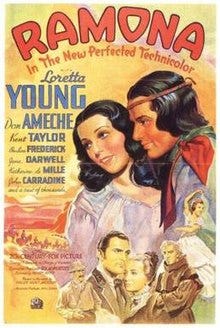To 2024: Hopes and Dreams and Why I'll Be Using Three Names on That Book I'm Going To Publish
Oh, didn't I tell you?

I’ve been trying to think of a smashing first line that wouldn’t bore you or drive you mad with those obligatory clichés when one year ends and another begins, and of course nothing came. Not a thing.
So I’ll begin by thanking all of my subscribers, old and new, paid and unpaid, from the bottom of my heart. (Oops. Cliché. Sorry.) 2023 marked my biggest gain since I arrived here at Substack in August, 2020, and I have to say, it’s a little unnerving.
Both of my blogs (Have you been to Writer Everlasting yet?) are far more successful than I’d ever dreamed, and all I can do is shake my head in wonder. I won’t go into numbers, because I cringe when people do that (sorry again if that offends…), but I will say to those who have signed up to be here, and to those who are paying monthly, yearly, or even as Founders (😳😊💕), to keep this little space going—if my gratitude was a thing it would probably look like this:
I don’t know what 2024 will bring and, as usual, I’m both excited and apprehensive. Excited because, if I manage to stay upright and reasonably healthy, I may still get to do some of the things I thought I might get to do in 2023. And apprehensive because 1) I’m really, really old, and 2) because it’s another damn election year.
Those two things aside—and they’re big, BIG things in my life—I’m hoping I can work on my dreams. My dream. I want to publish a book this year. A real book that has my name on the cover and that I can hold in my hands. This is the name I’m going to use:
Ramona Gracia Grigg
Why three names? Because it’ll probably be the only book I’ll ever have published. And all three names mean the world to me. All three names honor my life and my heritage.
My maternal grandmother, Lydia Bartanen Savela, was there at my birth, and it’s said she took one look at this third grandchild who, with her wild black hair, her black eyes, her darkish complexion, didn’t look like anyone in her Finnish realm, and said to my mother, “Ramona!”
Because the movie, ‘Ramona’ had come out in 1936 and I came along in 1937. It was based on the novel by Helen Hunt Jackson, about a mixed-race Scots-Native American orphan (played by Loretta Young) who lived through terrible discrimination in Southern California just after the Spanish-American War. Jackson, a well-known Indian rights advocate long before she wrote ‘Ramona’, based her novel on actual events—whole villages being torn down, natives forced into exile, the deaths based on real people—and said throughout her life that she wrote it as a protest, a wake-up call, a need to get the truth out.
My grandmother chose that name only because I was dark and she’d heard about a movie called ‘Ramona’ where pretty Loretta Young played a pretty black-haired woman, but she may well have unwittingly branded me with that kind of liberal/activist legacy. Whatever it is, I own it now.
My middle name, ‘Gracia’, comes from my paternal grandmother, Grazia Genitti Caporossi. Her parents emigrated from Italy to Canada when she was young, and there she met and married another Italian immigrant, my grandfather, Giuseppe, raising nine children, my father being the second oldest. They lived in a large Italian community called the ‘West End’ in Sault Ste. Marie, Ontario, within sight of the belching, roaring steel mill where my grandfather and most of my uncles had worked. (My father left for Detroit when he was in his twenties, having never worked in the steel mill. The only one of all of them to leave, and the only one to marry a non-Italian.)
The West End was a kind of Italian ghetto, a “Little Italy”. Signs were in Italian. The glorious smells of Italian food were everywhere. Every storekeeper spoke fluent Italian and very little English. And the children, my cousins included, could roll both languages off their tongues with enviable ease. They were my translators. I couldn’t go anywhere without them.
Whole salamis hung in cellars, where Grazia would take me and let me pick one out. I insisted on carrying that big sucker home. It smelled of mold and spices and heaven.
She took me once to someone’s basement where the women, almost all of them dressed in mourning black, stood at long tables plucking chickens and boiling them in giant pots on two huge gas stoves. The smell was horrendous, the scene ghastly, the air fairly dripped. I loved it!
I, a kind of shaky Lutheran, got to put on a headscarf and cross my chest with holy water and sit in on Latin Masses held in big, beautiful churches with stained glass windows.
I reveled in that strange, exotic world.
While Giuseppe the millworker could make whole sentences out of mostly fractured English, Grazia rarely left the West End and never had to speak anything but Italian. Until my mother and I came along. Our attempts at trying to communicate were hilarious. Grazia, always short-tempered, would throw up her hands and leave the room if we couldn’t understand. But then there were times when she would stroke my curly Italian hair and murmur, “bella'“. I lived for those moments.
I used to tease Ed that I only married him so I could lose ‘Caporossi’ and latch onto ‘Grigg’, a one-syllable name made up of only three separate letters—a name everyone should be able to pronounce. But I would also tease him that I fell in love with his family before I fell in love with him.
The Griggs were and are a bunch! I was the only non-Anglo-Saxon when I married Ed (My wonderful mother-in-law called me ‘Eyetalian’, and of course nobody could pronounce my last name), but now, almost 70 years later, we’re as diverse as I’d always hoped we would be. Discrimination? Hardly. We’ve got it all. And most especially love.
So my three names will go on this or any book I want to publish:
Ramona Gracia Grigg.
In case you might be wondering, the book will be a compilation of essays I’ve already published over these many years. I’m pulling out those pieces I think are my best and that I think have a message or a need to be seen again. I’ll edit them to bring them up to par and to add any explanation I think might be needed, but they’ll be what I thought when I thought it. They’ll still have to resonate with me. And I hope with readers.
Now all I have to do is put it all together. And give it a title. Piece of cake, right? 😉
Happy New Year, my friends and, again, thank you. It just wouldn’t be the same without you.
I need to say I loved growing up a Caporossi. I know now it’s a fine name meaning ‘red head’ (I didn’t know that until I was a grandmother!), which seems to fit since my grandfather, Giuseppe, was fair with twinkling blue eyes. He wept joyful tears whenever he played Caruso or Gigli on his Victrola. Smoking hand-rolled cheroots and weeping. Happily. I was a child who had never seen a grown man cry. It stunned me and I’ve never forgotten it. I adored him.









of course when I think of the name Ramona, I think of Ramona Quimby.
Count me in, please❗️